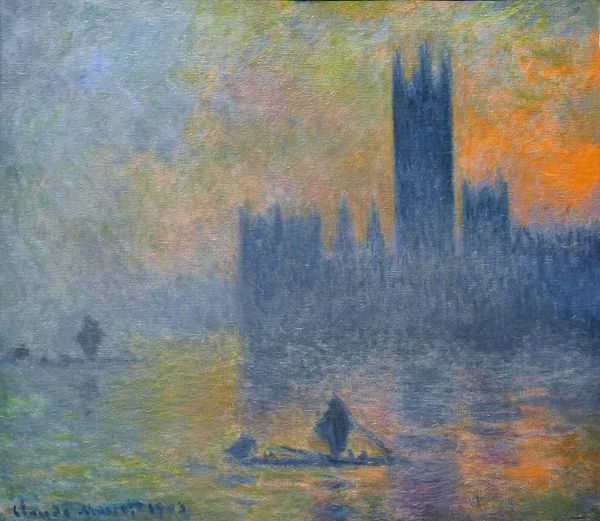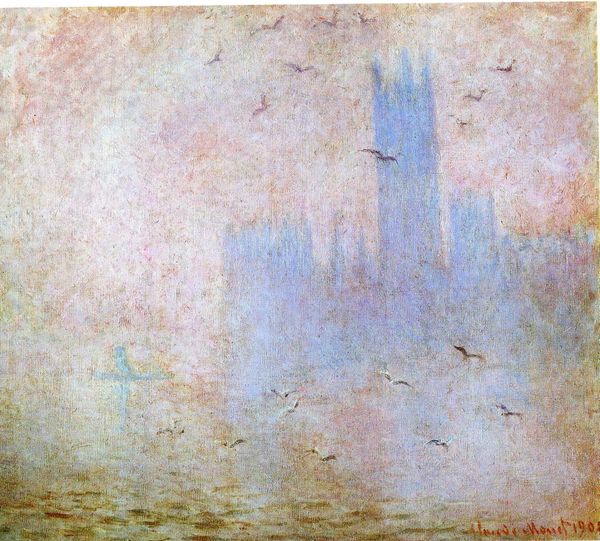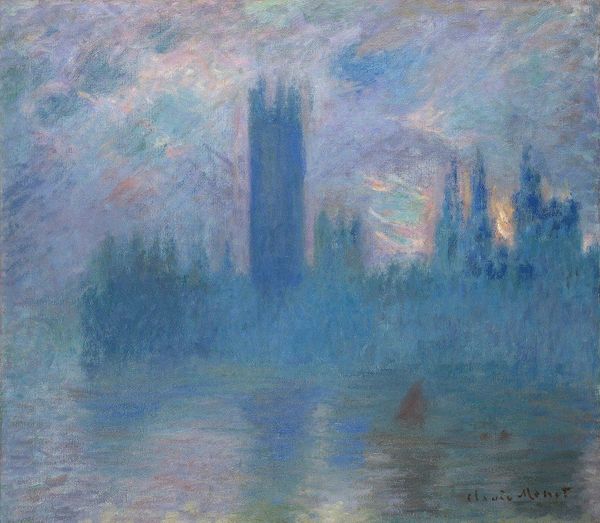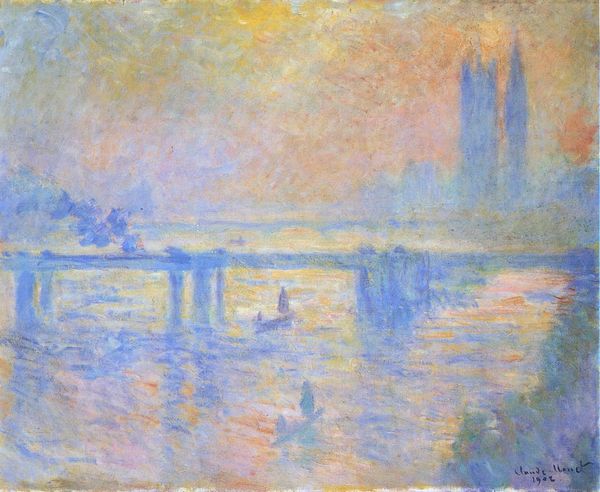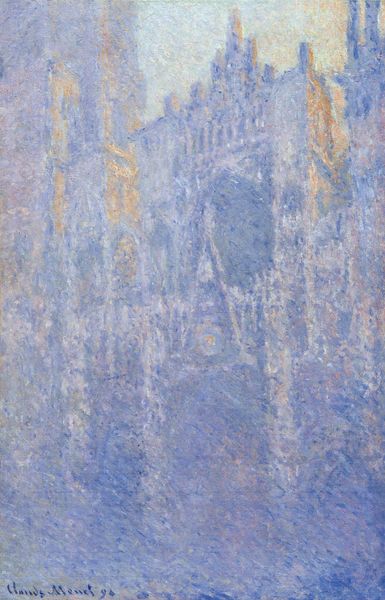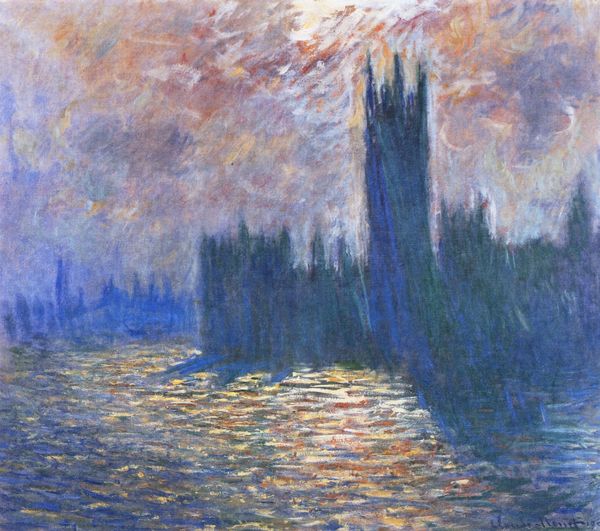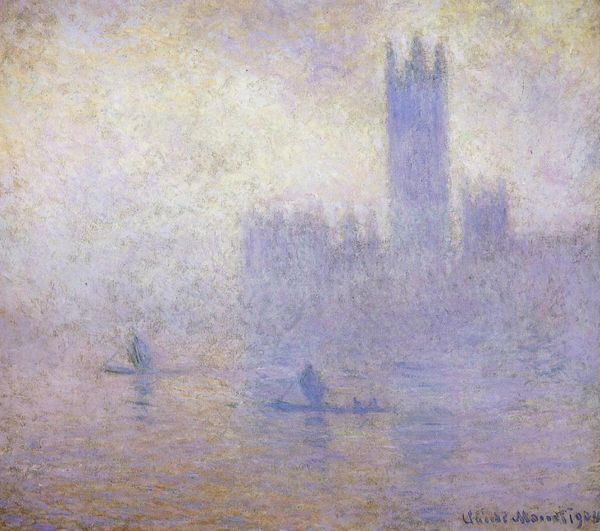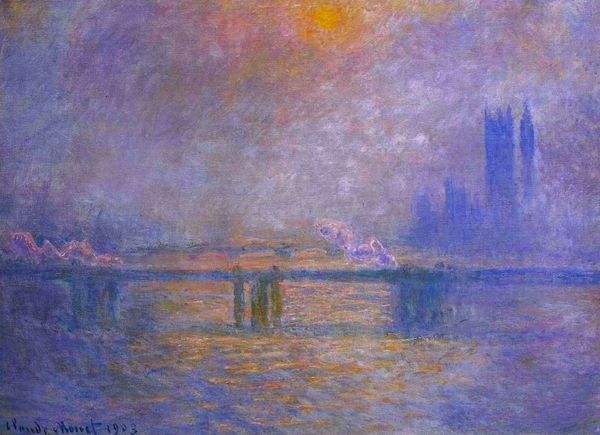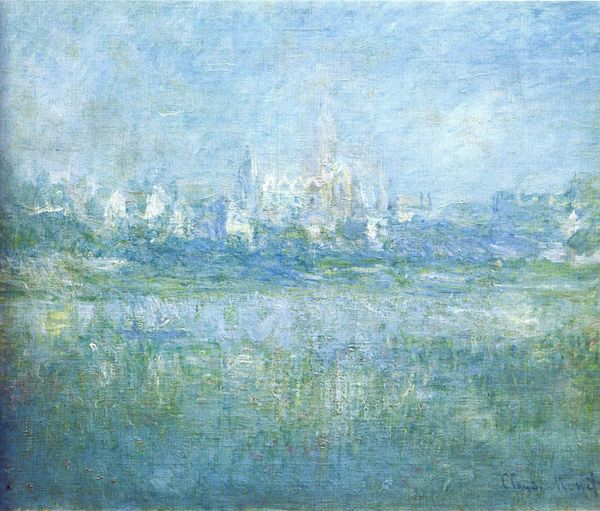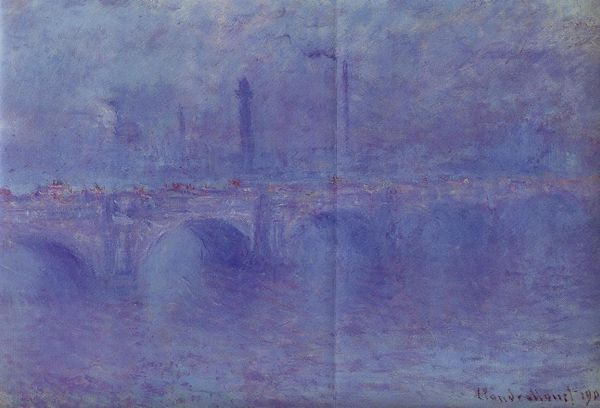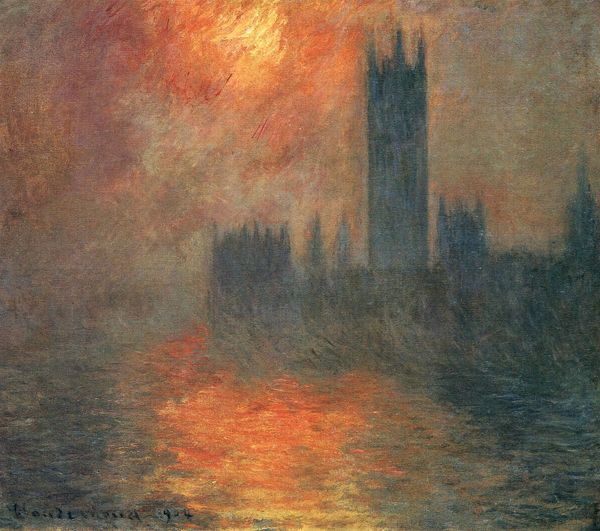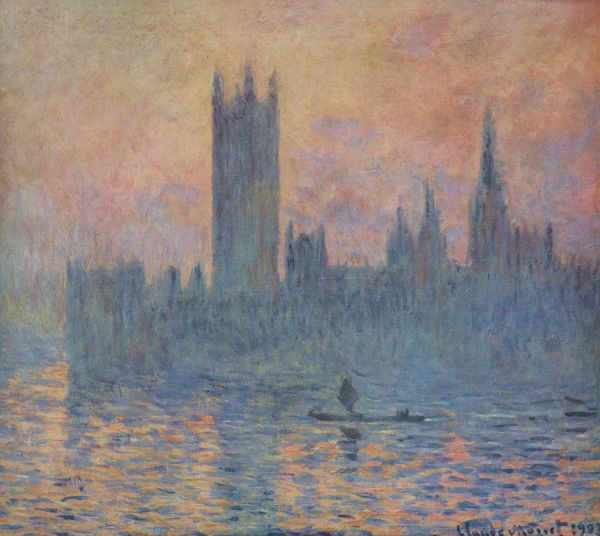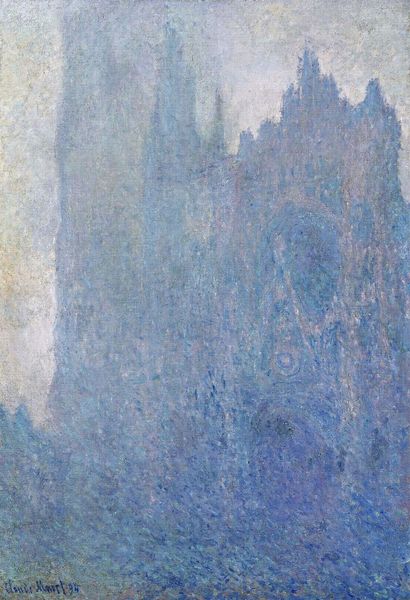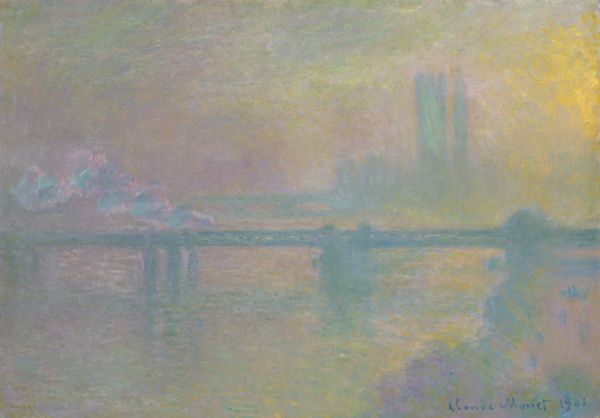
Copyright: Public domain
Curator: An uncanny stillness emanates from this canvas; the scene seems suspended between a dream and waking. Editor: Indeed, the atmosphere is quite palpable. This painting, entitled "Houses of Parliament, Fog Effect," was completed by Claude Monet in 1903. Oil paint was his chosen medium here, continuing his plein-air studies in London. Curator: Fog-bound London was more than just a painterly challenge for Monet, wasn't it? He chose to represent perhaps the foremost symbol of governance and legislation almost dissolved within that fog. The buildings are muted, yet there's an insistence, a perseverance, as they reflect within the water below. Editor: I agree entirely. The reflections of those faint spots of light become particularly important in this rendering of a famous landmark; tiny symbols, of course, glowing there between a clouded heaven and an uncertain earth. There's the barest hint of fire in those smoldering touches of yellow that peek out from within the dominating fog. Curator: It reflects the political context of England and Europe as well, the decline of old empires in the face of growing worker movements and socialist ideology, captured in pigment. I can’t help but view the entire suite of paintings in London with the added weight of what happened on those very benches in parliament. Editor: That’s so true. There are those critics, though, that discount the power of his socio-political insights because the artist claimed he was just about rendering the world in the colors he saw… Curator: Claims notwithstanding, an artist selects his subject matter, in life and art. This piece subtly hints at the idea that nothing, no matter how entrenched in the collective conscious, escapes the relentless flow of history or is untouched by socio-political upheaval. It captures more than just light, it is a document in a sense. Editor: Looking again at how Monet obscures the known, a building symbolizing rigid law itself swathed in uncertainty, and now considering our world, with our current uncertainties. The Thames becomes the river of time. Thanks, as always, for your knowledge. Curator: It is these conversations that give the artworks an opportunity to become richer in history! Thank you, likewise.
Comments
No comments
Be the first to comment and join the conversation on the ultimate creative platform.
